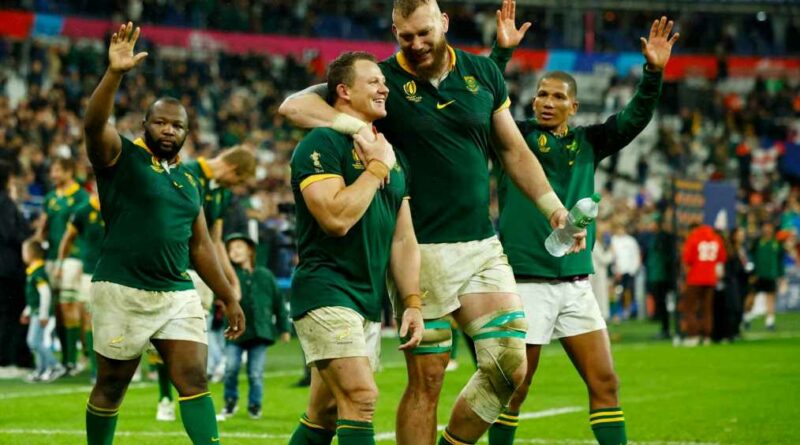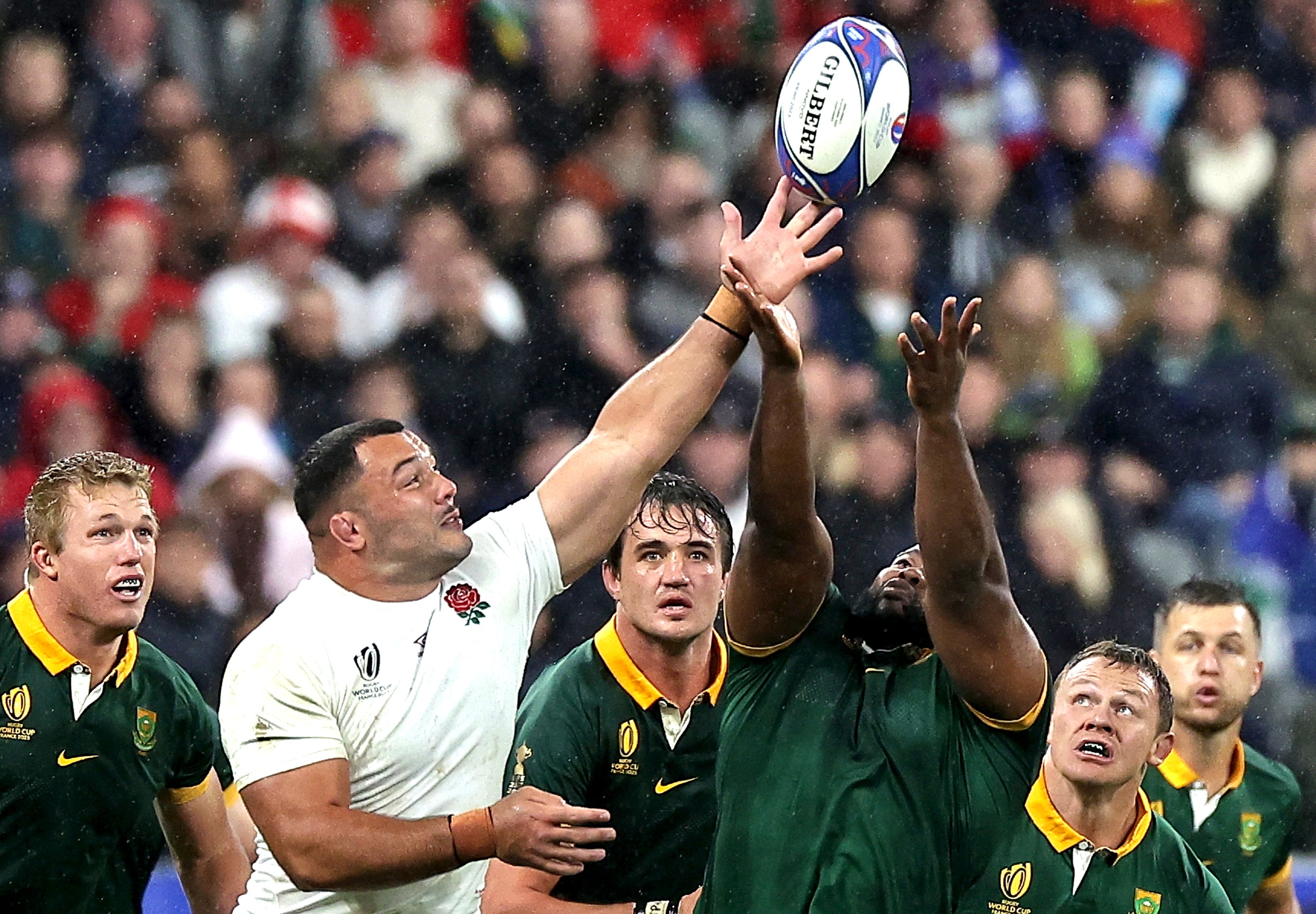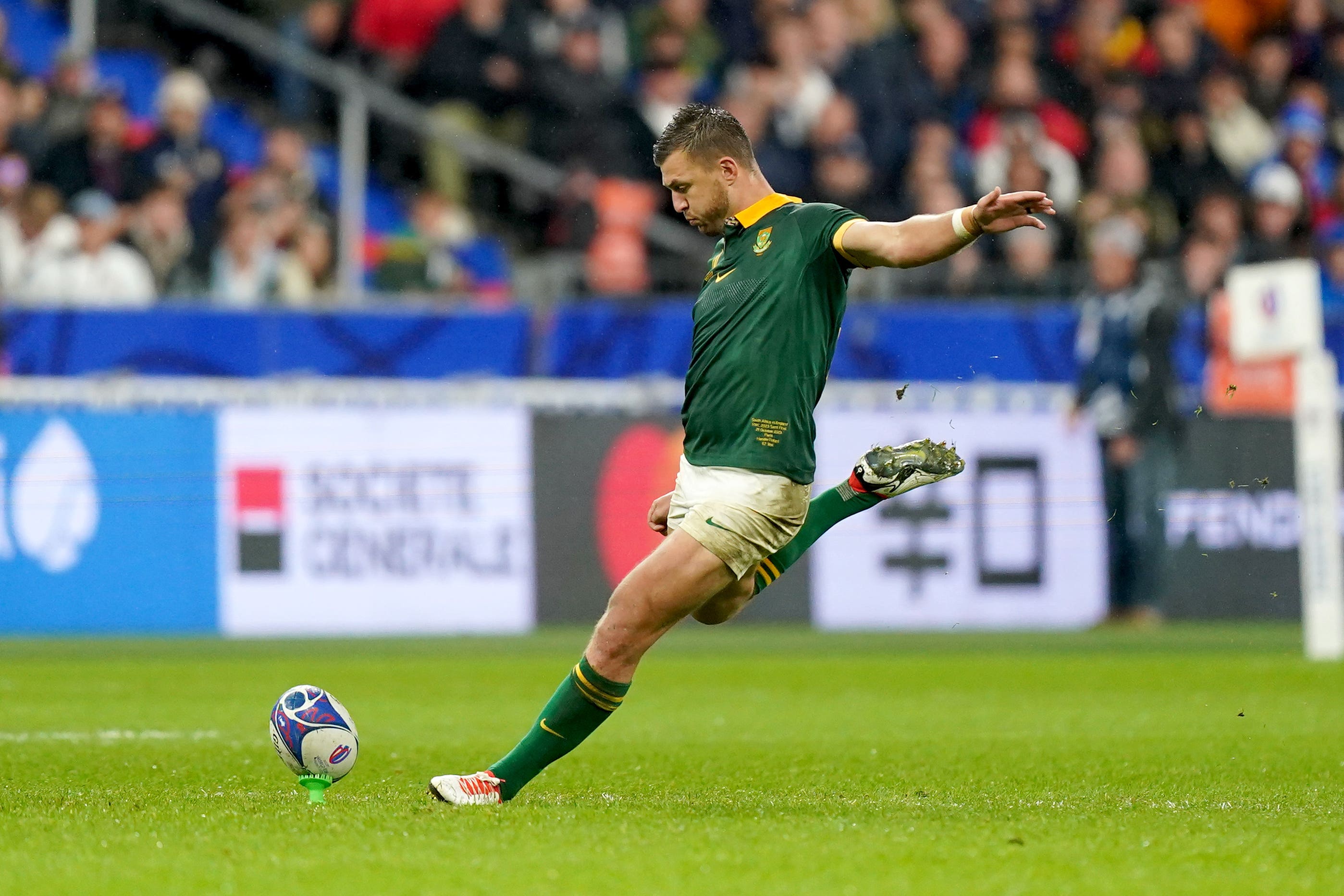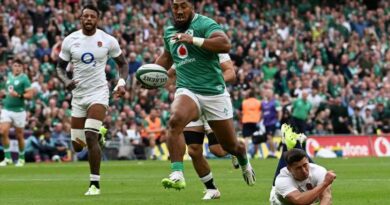‘We are the bomb squad’: How South Africa’s not-so-secret weapon turned Rugby World Cup semi-final
Vincent Koch celebrated RG Snyman’s try as the bomb squad thrived
And against England, when the chips were down, they realised they needed to step up more than ever.
“The bomb squad always stands for energy,” added Koch. “We needed to create a nice vibe. Putting the replacements on a bit earlier helped the boys to start to bring that energy and lift up the spirit and bring a massive work-rate.”
Where South Africa’s replacements thrived, perhaps England’s faltered just a touch.
The English gameplan, devised by Steve Borthwick and perfectly executed by the players for the windy and rainy Parisian conditions, relied upon relentless kicking, winning the subsequent aerial battle, slowing the game down and dominating the set-piece. Maybe then, they could escape with a win against an objectively superior team.
They kicked 93 per cent of possession away (the highest percentage of the tournament), had an average ruck speed of 6.73s (the slowest of the tournament) and had zero linebreaks (the only team to do so in a game at this tournament). They disrupted South African lineouts, turned over multiple mauls and Borthwick’s decision to play his two strongest scrummaging props – Dan Cole and Joe Marler – from the start earned them scrum parity and redemption from the disaster in that facet during the 2019 World Cup final.
Ox Nche was immense from the bench against the Springboks
This is a Springboks side that pride themselves on their dominance up front, as shown by opting for a scrum after calling a mark in their own 22 during the quarter-final victory over France. Of course, they won a penalty from it. Yet England were holding their own during those engagements, even thriving, and most importantly winning on the scoreboard.
But the innate problem with starting your best scrummagers came to fruition in the second half. Replacement props Ellis Genge and Kyle Sinckler are far more dynamic around the park and more destructive carriers than their veteran counterparts but, with England showing no desire to run any plays more than two metres either side of the previous breakdown, those skills were negated once they came on for Marler and Cole.
Instead, their inferior scrummaging was brutally exposed by a fired-up Koch and Nche, who turned parity into Springbok dominance. They won two scrums against the head, including a vital one at 15-6 down on their own line, and engineered multiple penalties on their own feed, including the most vital of all – on halfway, with 77 minutes on the clock and England leading 15-13. Pollard banged over the long kick and the rest was history.
Handre Pollard broke English hearts with his late penalty
Nche was coy when asked in the mixed zone after the game what had made the difference at scrum-time in the final quarter and how he bested his opposite number, Sinckler.
“That is the dark arts,” he smiled. “It is hard to explain to you. We had a plan for that. We knew what we were trying to achieve.
“They have had a great scrum for the competition and a great hit. Our focus was surviving that and applying pressure. Our mentality for every scrum is to get a penalty if we can. If they do survive, we play out the back and get into our shape.”
The “dark arts” ultimately won the day, South Africa survived a second straight one-point knockout match and must now plan how to overcome the All Blacks in a battle to be the first side to win four men’s Rugby World Cups.
Luckily, they have a not-so-secret weapon. “We are the bomb squad.”
Source: Read Full Article






